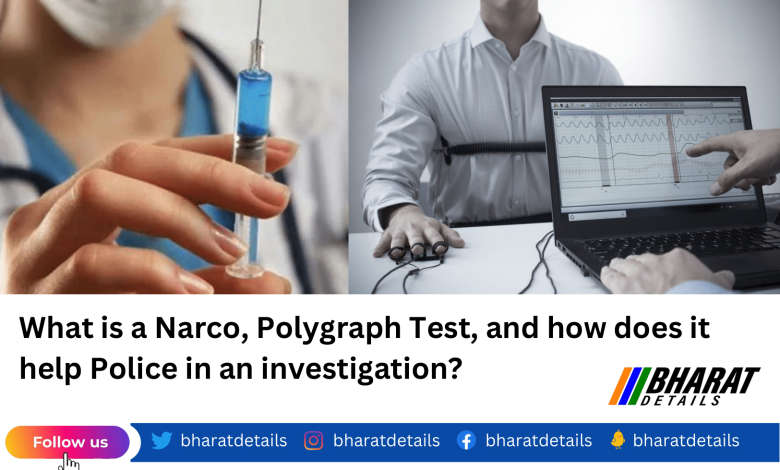What is Narco Test, Polygraph Test, and how does it help Police in an investigation?

Many people are unaware about what is Narco test, Polygraph test? Here we have complete details about what is Narco & Polygraph Test, and how does it help police in an investigation?
Contents
What is Narco Test?
In a narcotics test, a drug named “Sodium Pentothal” (anaesthesia) is injected into the body of the accused, which takes the accused into a hypnotic and unconscious state where the accused will only speak the truth. However, the accused’s physical and mental health must be in good working order prior to a narcotics test.
During the narco test, the accused is injected with a substance known colloquially as “truth serum,” which induces an unconscious state in which he or she can hear and communicate. In an unconscious state, it is said that the accused will not be able to lie, and he or she will provide the correct answer.
The effects of Sodium Pentothal or Sodium Thiopental are immediate, and they are most commonly used to numb the patient during surgery.
Is the narco and polygraph tests the same thing?
No, The polygraph test is basically a test conducted using digital equipment connected to the accused while they are being questioned. Based on the responses that are triggered, the investigating team may come to know when a person is lying.
Instead of injecting drugs into the suspect’s body, instruments such as cardio cuffs or sensitive electrodes are attached, and live readings such as blood pressure, pulse rate, respiration, change in sweat gland activity, blood flow, and so on are recorded during interrogation.
A numerical value is assigned to every response, which helps the team know if the person is telling the truth or not.
Why should narco or polygraph tests be done?
These are the softer tests when compared to the third degree. Hence, for a few years, the investigating team has preferred these tests, which allow them to learn the truth while avoiding torturing or inflicting third-degree burns on the accused.
But none of them can be considered 100% true, and even the result or the statement recorded during these tests are legal evidence that can stand before the court.
Can the results of these tests be considered “confessions” or “true”?
No, as mentioned above none of them can be considered as an legal evidence that can stand before the court. However, the Supreme Court has announced that the items that are discovered on the basis of these tests can be presented as evidence in court.

